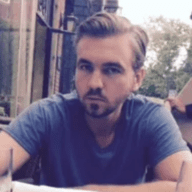Quarantining in place has left the world facing a lot of challenges, but for members of the rare disease community, the situation is often more dire. Many members of this massive community are immunocompromised, meaning they are extremely vulnerable to being infected, and the consequences of such an infection are extremely serious.
A recent survey by NORD shows that 98% of rare participants are afraid of catching COVID-19.
The poll also showed that:
• 39% have had challenges accessing medical care or treatment
• 74% have had medical appointments canceled due to COVID-19
• 29% have lost jobs temporarily or permanently due to COVID-19
• 40% of households have been affected by loss of income
• 11% of job losses have resulted in loss of health insurance
Members of the rare disease community are in the most need. On April 15, NORD established its COVID-19 Rare Disease Critical Needs Non-Medical Assistance Fund, which provides financial aid to rare disease patients who qualify.
COVID-19 has highlighted many needs in the rare disease community. With many hospitals around the world overwhelmed, it can be difficult for rare patients to interact with their care teams. Many patients also struggle with mobility, which has been exacerbated in some cases because of social distancing measures.
Before the pandemic, progress was slow going, but the pandemic has accelerated the pace of some important changes. NORD has appealed to legislatures on both sides of the aisle, asking them to remove many of the cumbersome barriers that exist when it comes to things like acquiring medication. They also want to adjust refill limits in an effort to allow patients to get the medication they need in a safe fashion.
There still needs to be more action. Hopefully some of the positive changes that occur as a result of COVID-19 last, and the new normal spells a brighter future when it comes to the development and delivery of treatments to people with rare diseases.

